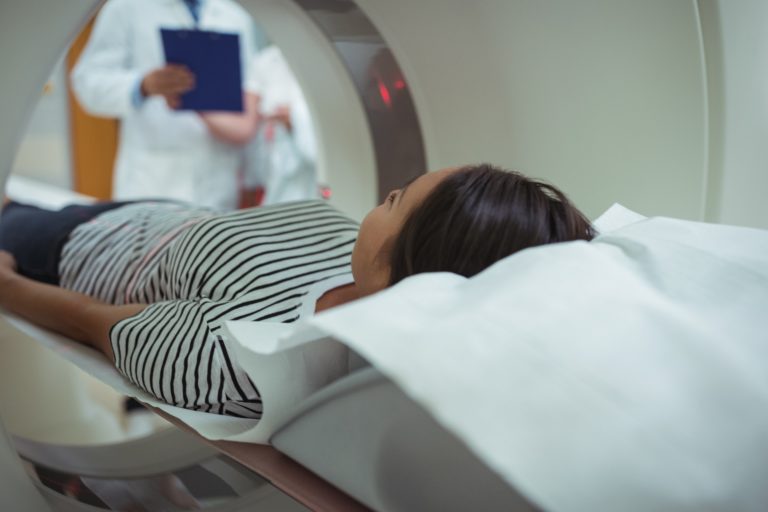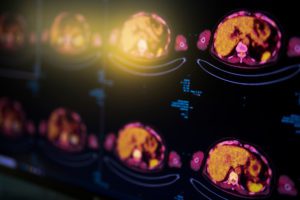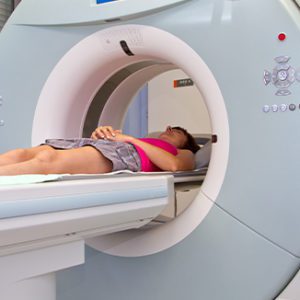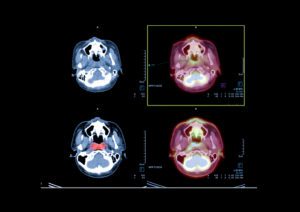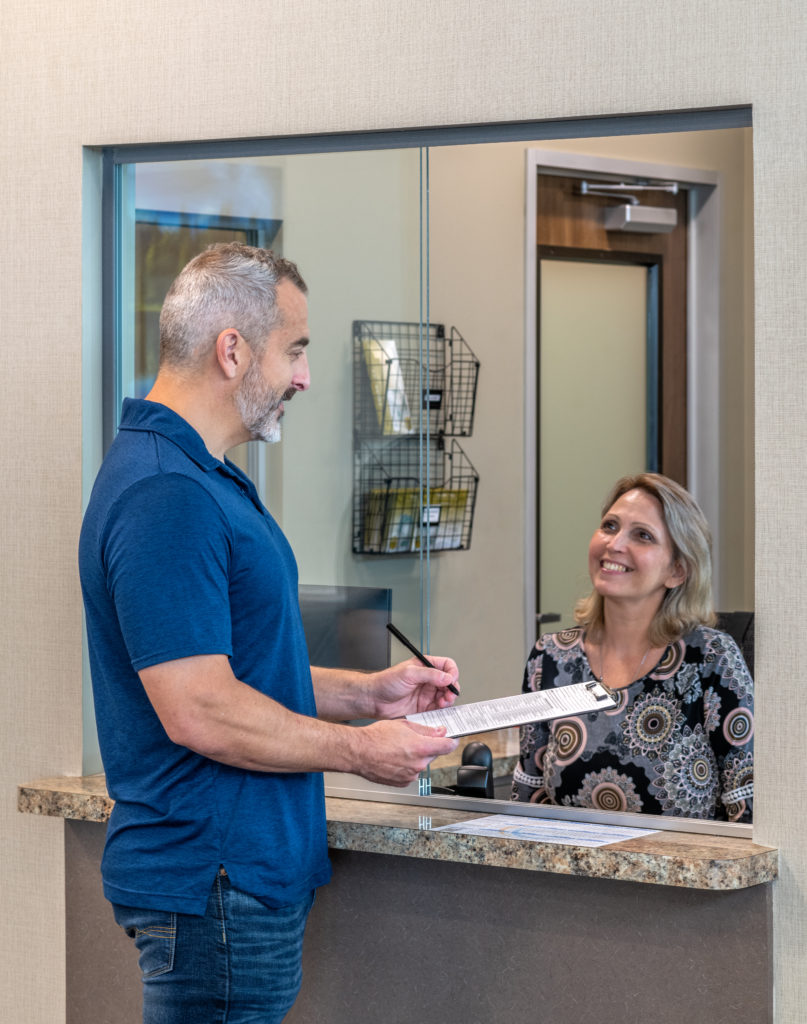A technologist will insert an intravenous (IV) catheter into a vein in your hand or arm and inject a radiotracer. There are no side effects associated with the injection. It will take approximately 60 minutes for the radiotracer to travel through your body and to be absorbed by the organ or tissue being studied. During this time, you will be asked to rest quietly, avoiding excessive movement, or talking. You may be asked to drink some contrast material that will localize in the intestines and help the radiologist interpret the study.
You will be positioned on an examination table and moved into the PET/CT scanner and the imaging will begin. You will need to remain still during imaging. The PET/CT images will take 20-30 minutes to complete.
You will be free to leave the facility and resume normal activities as your health permits. A radiologist reads your PET/CT, and the results are reported directly back to your doctor.
The day before your PET/CT appointment, eat a high protein, low carb diet, and do not perform any strenuous activity 24 hours before the exam.
On the day of your PET/CT scan, do not eat, or drink (except water) for six hours prior to your scan. You may take your regularly scheduled medications. If you are diabetic, please contact the facility for additional instructions. You should wear comfortable, loose-fitting clothing with no metal accessories.
A PET/CT scan is considered safe. The amount of radiation in the radioactive tracer and CT imaging are low and do not stay in the body for long. Drink plenty of fluids in the days following your PET scan to help your body flush the traces from your system
Please let our facility and your doctor know if you are pregnant or breastfeeding, as you should not get a PET/CT scan. In addition, notify our radiology technician if you have diabetes or a history of kidney disease as they may also affect the results of the scan.
Yes, the PET/CT scan takes 20-30 minutes and most patients are comfortable with receiving a scan during that time. Your technician will work with you to insure you are comfortable during the scan. If you have anxiety about your imaging appointment, please contact your doctor to discuss options for reducing your anxiety prior to your appointment.
A CT scan uses multiple X-Ray images, known as slices, to create a detailed picture of the structure of bones, organs, and tissues in the body. The addition of the PET scan provides vital information about the functional activity of your organs and tissues.
Yes. Your oncologist may order a PET/CT scan to evaluate the stage of cancer, as well as determine the location and tissue for a biopsy, evaluate how a cancer treatment is working, create a plan for radiation therapy treatment, or check for new cancer growth or evidence of disease after treatment has ended.

